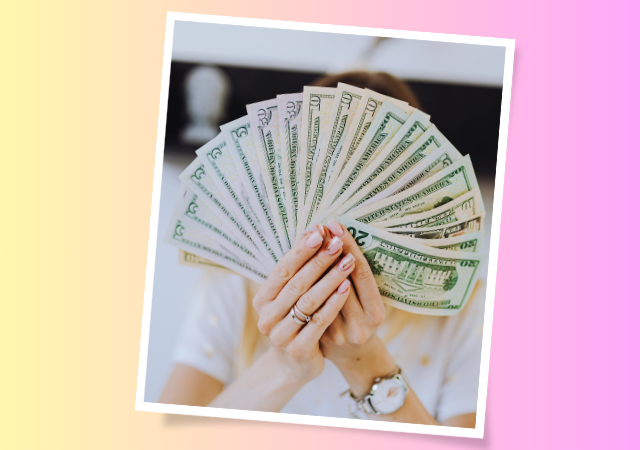What is the Salary of a Makeup Artist?
Introduction
The world of makeup artistry is a captivating realm where talent, creativity, and precision converge to enhance natural beauty or transform individuals into entirely new personas. For those who possess the skill and passion for this artistic craft, pursuing a career as a makeup artist can be an immensely rewarding endeavor. While the love for makeup is often the driving force behind this profession, many aspiring artists wonder about the financial prospects of their chosen path. Just how much can one expect to earn as a makeup artist?
This question is not as straightforward as it may seem. The salary of a makeup artist varies significantly based on several crucial factors, including location, experience, specialization, and industry. In this article, we will delve into the multifaceted world of makeup artist salaries, exploring the diverse opportunities available to makeup artists, the factors that influence their earnings, and offering insights into how to maximize your income in this artistic field.
Makeup Artist Job Overview

Before we dive into the nitty-gritty of makeup artist salaries, let’s first establish a basic understanding of the makeup artist profession. Makeup artists are skilled professionals who use makeup products and techniques to enhance a person’s appearance. They can work in a variety of settings, including the beauty industry, film and television, theater and stage, and special effects and prosthetics.
Makeup artists may specialize in different areas, each requiring specific skills and expertise:
- Beauty Makeup Artists: These artists focus on enhancing the natural beauty of their clients. They often work with individuals attending special events, like weddings and parties, as well as with models and actors for photoshoots or red carpet appearances.
- Film and Television Makeup Artists: In the world of film and television, makeup artists play a crucial role in creating characters and ensuring that actors look their best on screen. They must be skilled in various makeup techniques and often work long hours on set.
- Theater and Stage Makeup Artists: These artists work in the performing arts industry, creating makeup looks for actors who need to be visible to a live audience. Theatrical makeup can be quite elaborate, helping actors transform into different characters.
- Special Effects and Prosthetics Makeup Artists: This is a specialized field where artists create intricate and often grotesque makeup looks for movies, television shows, and theme park attractions. It involves using prosthetics and other techniques to achieve realistic effects.
Makeup artists can choose to work in a freelance capacity, where they take on various clients and projects, or as full-time employees for a specific company or organization. Both options come with their unique advantages and considerations, including how they affect earnings.
Factors Influencing Makeup Artist Salaries
Now, let’s explore the key factors that influence the salaries of makeup artists.
1. Location:
Location plays a significant role in determining a makeup artist’s earnings. Different regions and even specific cities within those regions offer varying levels of demand for makeup services and, consequently, different salary opportunities. For example, makeup artists in major urban centers typically command higher rates compared to those in rural areas.
In high-cost-of-living cities such as New York or Los Angeles, makeup artists can charge premium rates due to the increased demand for their services. In contrast, those in smaller towns or regions with lower living expenses might need to charge less. As a result, location is a crucial factor for makeup artists to consider when determining their pricing and potential income.
2. Experience and Skill Level:
Experience and skill level are fundamental determinants of a makeup artist’s salary. Makeup artists often start at entry-level positions, honing their craft and building a portfolio. Entry-level makeup artists typically earn less than their more experienced counterparts.
As makeup artists gain experience and improve their skills, they become more sought after and can charge higher rates. Mid-career professionals, who have established their reputation and client base, can significantly increase their earnings. Highly experienced and celebrity makeup artists are in a league of their own, commanding exceptionally high fees due to their recognized expertise.
3. Education and Training:
The level of education and training a makeup artist receives also impacts their salary potential. Many makeup artists undergo formal training in accredited makeup artistry programs, where they learn essential techniques, product knowledge, and hygiene practices. These programs can range from short courses to more comprehensive certification programs.
Education and training not only equip makeup artists with valuable skills but also provide them with credibility in the industry. Clients are often willing to pay more for the services of a certified makeup artist. Additionally, makeup artists who invest in ongoing education to stay up-to-date with the latest trends and products can further enhance their earning potential.
4. Industry and Niche:
The specific industry and niche within makeup artistry significantly affect salary ranges. Different areas of specialization come with varying income prospects. Here’s a breakdown of some common makeup artist niches:
- Beauty Industry: Makeup artists in the beauty industry may work at makeup counters, beauty salons, or offer freelance services for weddings and special events. The earning potential can be moderate, with the possibility of earning extra through tips and product sales.
- Film and Television: Makeup artists in the film and television industry often earn higher salaries due to the long hours and demanding work. Their income may also increase with the scale and budget of the production.
- Theater and Stage: These makeup artists work closely with theater productions and live events. While the income may be more stable than freelance work, it may not reach the heights of those in the film and television industry.
- Special Effects and Prosthetics: Makeup artists in this niche typically earn competitive salaries, especially when working on big-budget productions. The intricate nature of special effects makeup often commands higher rates.
Understanding the specific niche and industry you want to pursue is essential in gauging your potential earnings.
Makeup Artist Salary Ranges

Now, let’s break down the salary ranges for makeup artists based on their experience and expertise.
1. Entry-Level Makeup Artists:
Entry-level makeup artists, just starting in the field, can expect to earn more modest salaries. They may work at makeup counters in department stores or offer their services for special events. On average, entry-level makeup artists can earn an hourly rate ranging from $10 to $20 or a project fee that may vary depending on the client’s requirements. While the pay is relatively lower, entry-level positions offer opportunities to gain experience and build a portfolio, which is crucial for career advancement.
2. Mid-Career Makeup Artists:
As makeup artists gain experience and build their reputation, they can command higher earnings. Mid-career professionals often charge between $25 and $60 per hour, and their project fees can range from $100 to $300 or more. These makeup artists have honed their skills and often have a loyal client base. Some may also work with higher-end clients, such as brides or those attending upscale events, which allows them to charge premium rates.
3. Highly Experienced and Celebrity Makeup Artists:
Highly experienced makeup artists, especially those with a recognizable brand and celebrity clientele, can earn substantial incomes. Some renowned makeup artists charge hourly rates exceeding $100, while their project fees can run into the thousands or even tens of thousands of dollars for special events or editorial work. These artists have established themselves as industry leaders, and their earnings reflect their exceptional skills and reputation.
Regional Variations in Makeup Artist Salaries
As mentioned earlier, the location of a makeup artist’s work has a significant impact on their salary. Let’s take a closer look at regional variations:
A. High-Paying Regions:
- New York City: Known for its bustling fashion and entertainment industries, makeup artists in New York City can earn some of the highest salaries in the profession. With a higher cost of living, makeup artists often charge premium rates.
- Los Angeles: Similar to New York City, Los Angeles is a hub for the film and entertainment industry, making it a lucrative location for makeup artists. High demand for makeup services contributes to competitive rates.
- Miami: Miami’s thriving beauty and fashion scene provides makeup artists with good earning potential, particularly for those who specialize in event makeup.
B. Low-Paying Regions:
- Rural Areas: In rural or less populous areas, the demand for makeup services may be lower, resulting in makeup artists charging lower rates. The cost of living is often more affordable in these regions.
- Small Towns: Makeup artists in small towns may face limited opportunities and competition, which can impact their earning potential. However, they may still find success by serving a niche market.
It’s crucial to note that while high-paying regions may offer greater income opportunities, they also come with higher living costs and increased competition. Makeup artists must weigh these factors when deciding where to establish their careers.
Cost of Living and Makeup Artist Earnings
While makeup artists in high-cost-of-living areas may command higher salaries, it’s essential to consider the cost of living when assessing your potential earnings. A higher income may be necessary to maintain a comfortable standard of living in metropolitan areas with elevated living expenses.
For makeup artists in lower-cost regions, lower rates may still allow them to achieve a satisfying quality of life. Therefore, it’s essential to strike a balance between earning potential and cost of living to determine what works best for your personal circumstances.
Makeup Artist Salary Comparison

Let’s explore some comparisons to gain a better understanding of makeup artist salaries in relation to other professions and employment types.
A. Freelance vs. Full-Time Positions: Makeup artists can choose between freelance and full-time positions, each with its own set of advantages and disadvantages.
- Freelance Makeup Artists: Freelancers have the flexibility to set their rates and choose the clients and projects they work on. While they enjoy independence, they also bear the responsibility of managing their business, marketing their services, and handling administrative tasks. Freelance makeup artists may earn higher rates per project but must account for irregular work and income fluctuations.
- Full-Time Makeup Artists: Full-time makeup artists working for a company or salon often receive a steady income, benefits, and job security. However, they may have less control over their rates and work schedules. The stability of a full-time position may offset the potential for higher per-project earnings.
The choice between freelance and full-time work depends on your career goals, risk tolerance, and personal preferences.
B. Makeup Artist vs. Related Professions: Comparing makeup artists to related professions in the beauty industry can shed light on salary disparities.
- Makeup Artist vs. Cosmetologist: Cosmetologists are trained in various beauty services, including hair styling, skincare, and nail care. While they can offer makeup services, makeup artists often specialize exclusively in makeup. Cosmetologists may earn slightly more than makeup artists due to their broader skill set, with an average annual salary ranging from $20,000 to $60,000.
- Makeup Artist vs. Esthetician: Estheticians focus on skincare and facial treatments, with some offering makeup application as part of their services. Makeup artists tend to have more specialized makeup skills. Estheticians earn an average annual salary of approximately $30,000 to $50,000.
It’s important to consider your interests and strengths when choosing a career within the beauty industry. Makeup artists can carve out a niche based on their passion for makeup and artistic expression.
Job Satisfaction and Non-Monetary Benefits
While salary is a crucial aspect of any career, makeup artists often find immense job satisfaction beyond their financial earnings. Here are some non-monetary benefits of pursuing a career in makeup artistry:
A. The Passion for Creativity:
Makeup artists are passionate about their craft, and the joy of transforming someone’s look or creating stunning makeup designs is a fulfilling aspect of the job.
B. Building a Portfolio and Reputation:
Every makeup artist starts by building a portfolio, showcasing their best work. Over time, a strong portfolio can attract more clients and lead to greater income opportunities.
C. Networking and Industry Connections:
Makeup artists often form connections in the beauty and entertainment industries. These connections can open doors to exciting projects, collaborations, and referrals.
D. Job Flexibility and Work-Life Balance:
Freelance makeup artists enjoy flexibility in their schedules and the ability to balance work with personal life. This flexibility can be a valuable aspect of the job.
Tips for Maximizing Makeup Artist Earnings
For makeup artists looking to increase their earnings, here are some valuable tips:
A. Continuing Education and Specialization:
Invest in your skills by taking advanced courses and staying up-to-date with the latest trends and techniques. Specializing in a specific niche, such as bridal makeup or special effects, can make you more attractive to clients seeking those services.
B. Building a Strong Portfolio:
Your portfolio is your calling card. Continuously update it with your best work to showcase your capabilities and attract more clients.
C. Marketing and Self-Promotion:
Effective marketing is essential for attracting clients. Create a professional online presence, utilize social media, and engage in self-promotion to increase your visibility.
D. Networking and Industry Relationships:
Building relationships within the industry can lead to referrals and collaborations. Attend industry events, trade shows, and connect with professionals in related fields.
Conclusion
In the world of makeup artistry, the salary of a makeup artist is influenced by a multitude of factors, including location, experience, education, and industry specialization. Makeup artists can start with modest entry-level earnings and work their way up to lucrative careers by honing their skills, building a strong portfolio, and effectively marketing their services. While makeup artists in high-demand regions may command higher rates, they must also contend with increased living costs and competition.
Despite the financial variables, makeup artists find fulfillment in their creative work and the ability to express their artistic talents. Job satisfaction, networking opportunities, and the potential for industry recognition are also key factors that contribute to the allure of this profession. For aspiring makeup artists, the path to success involves a blend of artistic passion, ongoing education, and savvy business practices. Ultimately, makeup artistry offers both the opportunity to express one’s creativity and the potential for a rewarding and fulfilling career.

My name is Rohit Vagh and I’m a content writer specializing in fashion and lifestyle. I have three years of experience in this field and have written various articles. My writing style is creative and engaging, and I strive to create content that resonates with my readers. I have a deep passion for fashion and am constantly researching the latest trends and styles to make sure my readers are up to date. I’m excited to continue my career in blogging, and I’m always looking for new opportunities in the fashion and lifestyle space.





